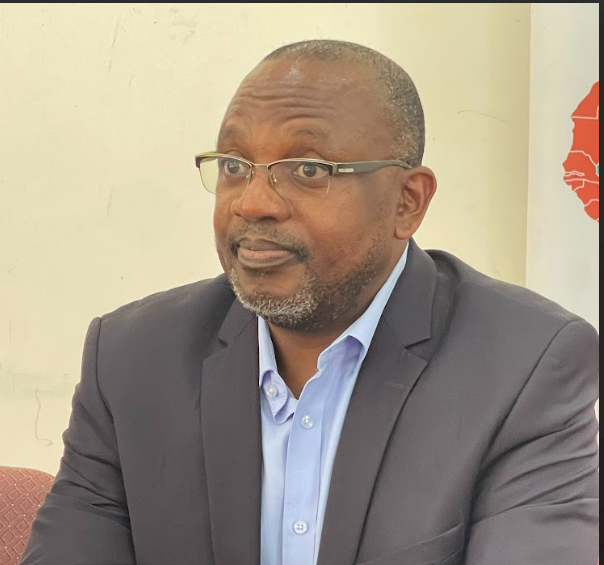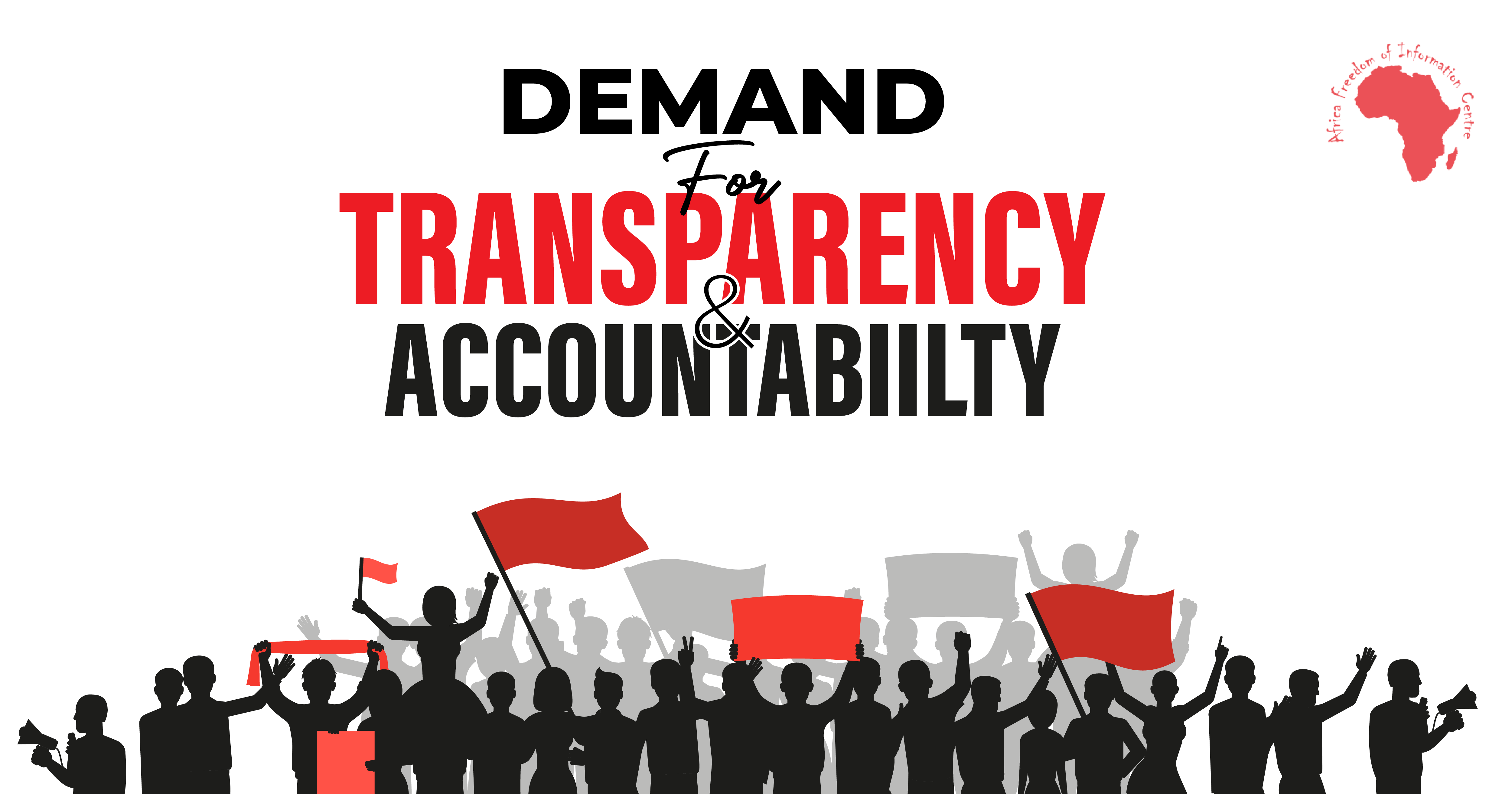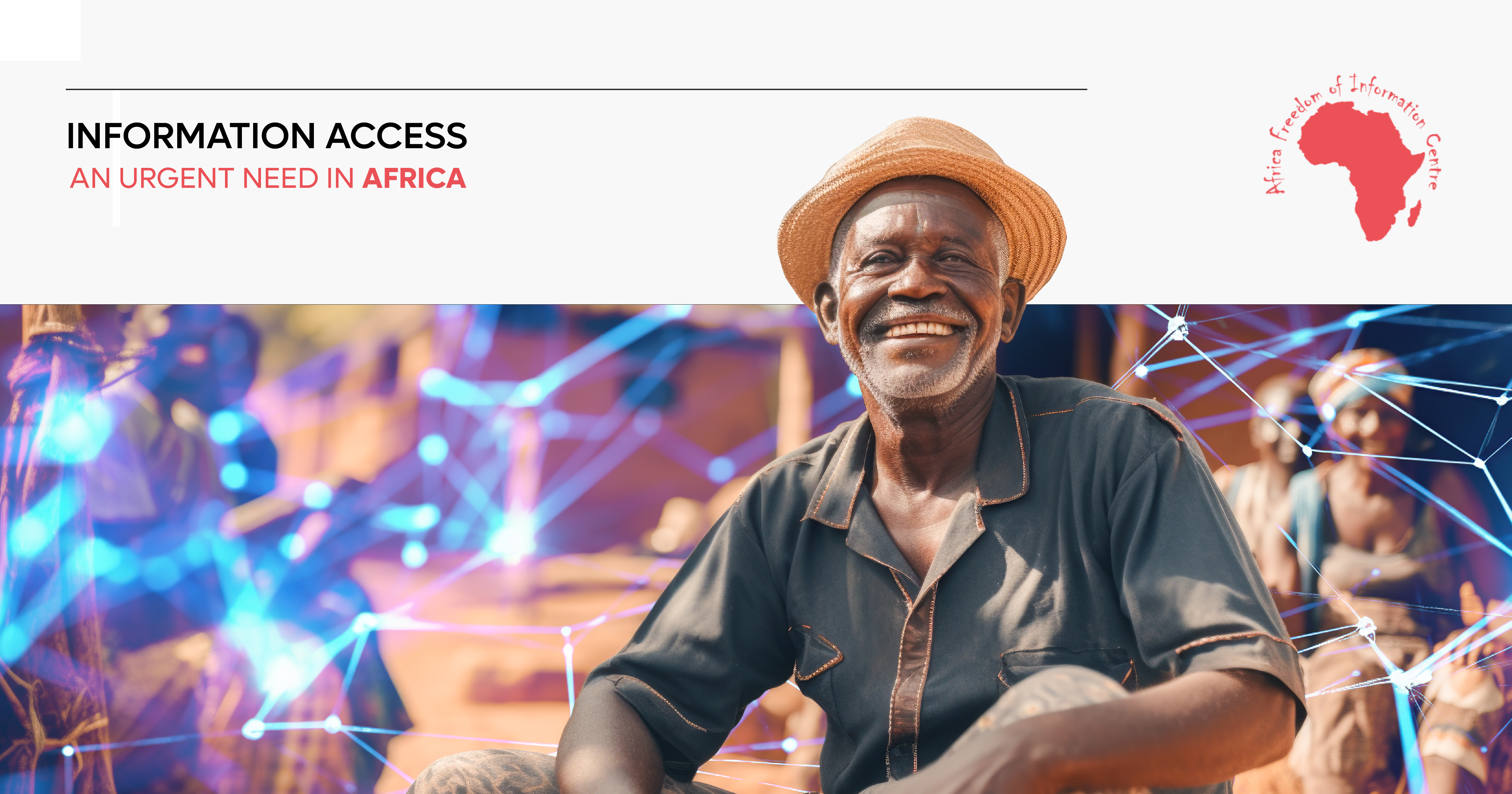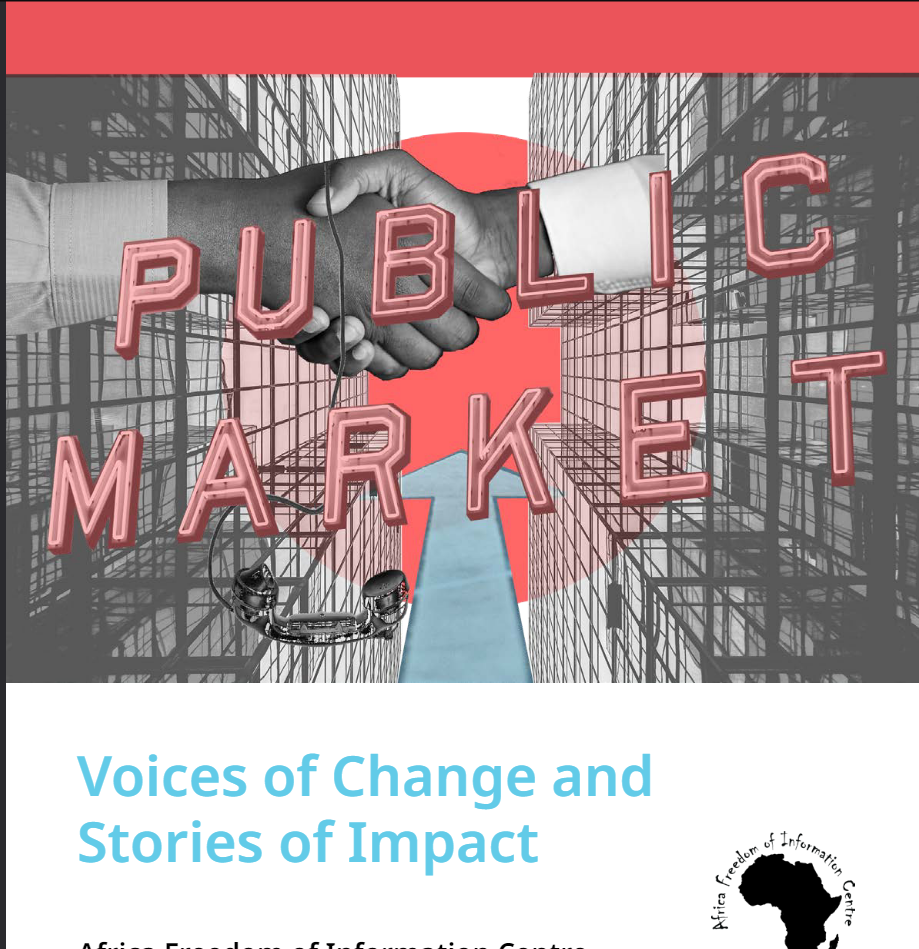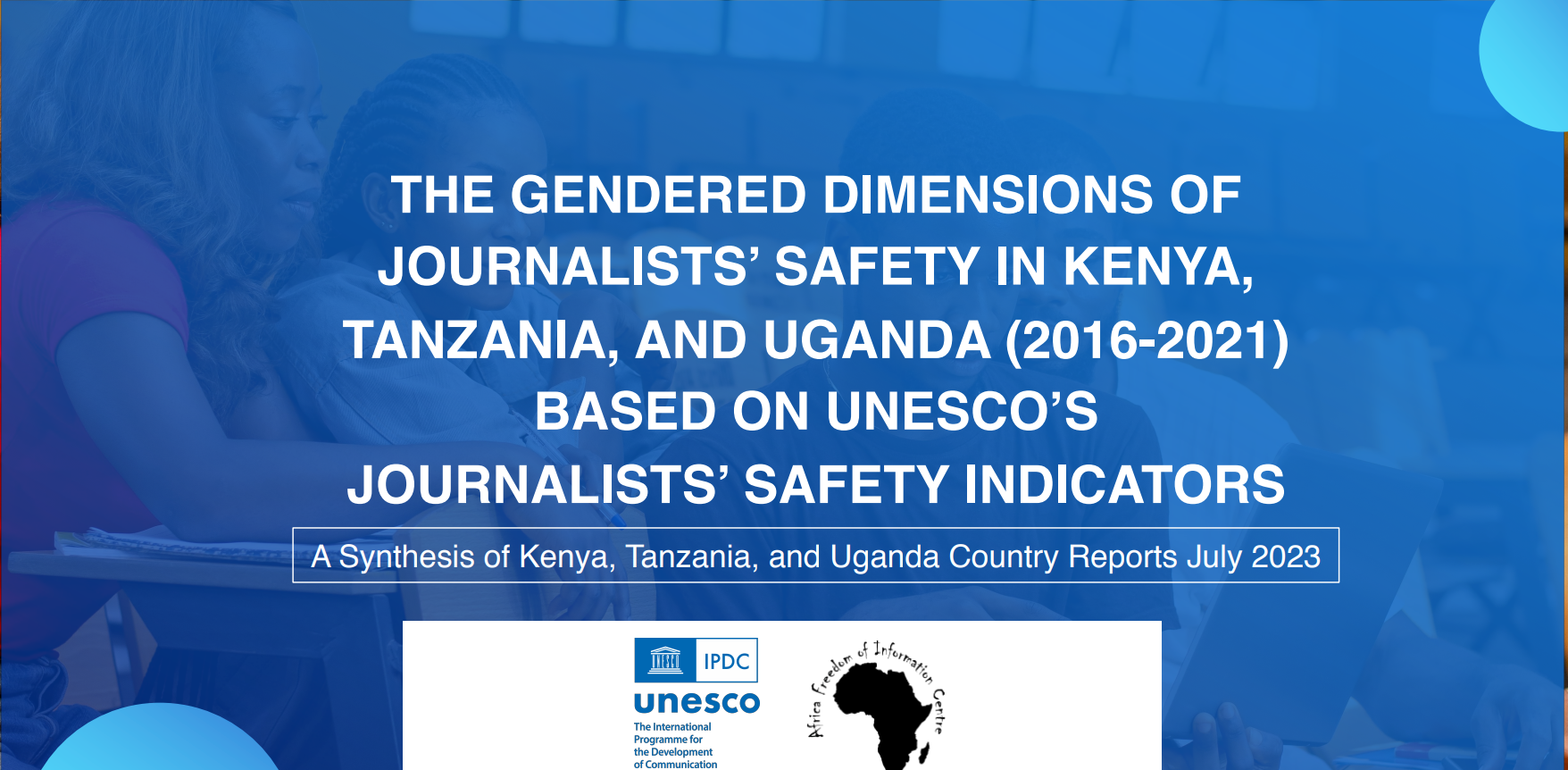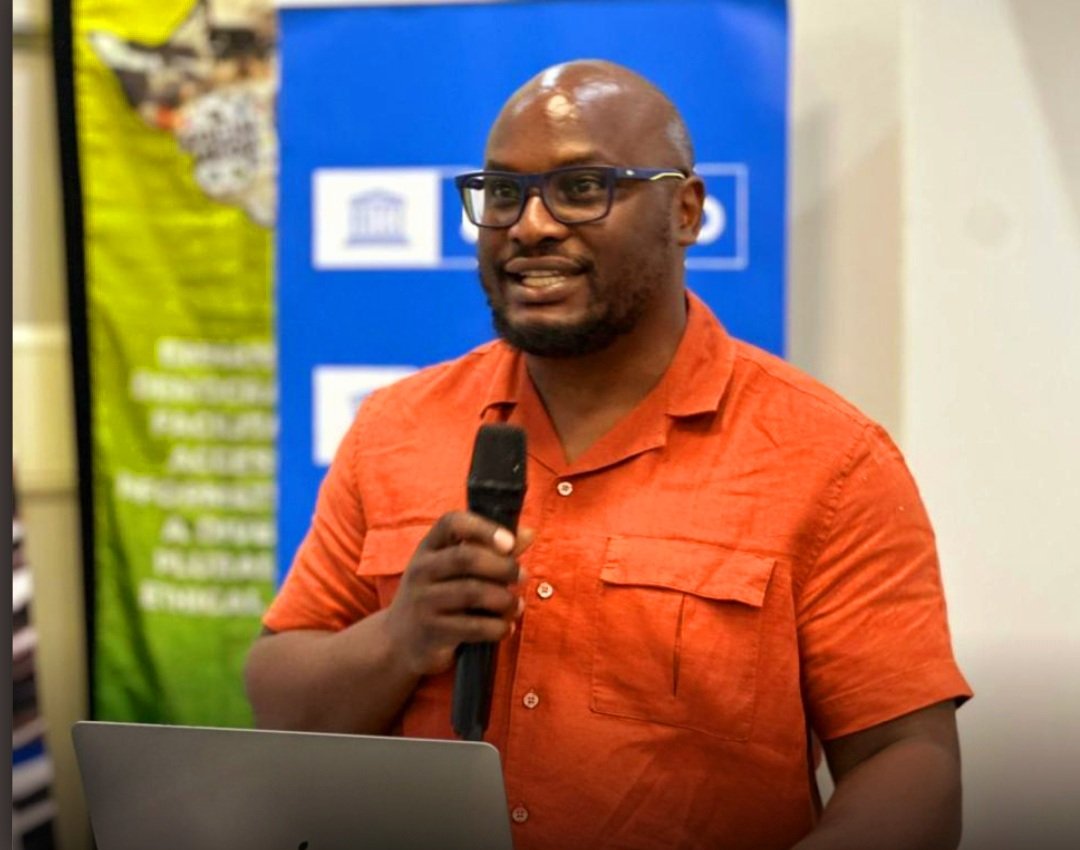Public procurement: AFIC/PPDA empower women owned businesses to win contracts
Africa Freedom of Information Centre (AFIC) in partnership with the Public Procurement and Disposal of Public AssetsAuthority (PPDA) are working to empower women owned businesses in four select entities in Uganda; PPDA, Wakiso DLG, KCCA and Mbarara City. This is aimed to increase women’s participation in public procurement. AFIC research conducted between 2021 […]
Read MorePublic procurement report: Women businesses left out on contracts
Participation of Women-Owned Businesses (WoBs) in public procurement is not only a matter of economic empowerment but also a crucial step towards fostering gender equality and inclusive economic growth. Under their Lift Program, Open contracting Parternship selected AFIC and PPDA to participate in the program under the shared theme of leveraging open contracting to advance […]
Read MoreWhy does Africa Need Open Legislatures?
This post was co-written by Peter Veit of the World Resources Institute and Gilbert Sendugwa, Coordinator and Head of Secretariat for the Africa Freedom of Information Centre. Open government requires an open executive branch, an open legislature, and an open judiciary. Historically, in Africa, however, global attention to government transparency and access to information has […]
Read MoreAccess to information: Why a priority for public officials?
Over the past ten years of my work on access to information- campaigning for adoption of access to information laws, training public officials, civil society organisations and journalists and researching- I have learnt that public access to information is as important for public officials as it is for ordinary citizens in various ways. Importance First, […]
Read MoreCelebrating Outstanding Access To Information Cases in Africa
Since 2010, the momentum for adoption and implementation of access to information has picked up and the number of African countries with access to information laws has increased from five in 2010 to 29 in 2024. While a considerable number of countries are yet to adopt ATI laws and implementation challenges persist, there are thousands […]
Read MorePPDA issues regulations for the reservation scheme for special interest groups
Research study by Africa Freedom of Information centre found that only 1% of women-led businesses participate in public procurement in Uganda. On Thursday, 25th January, The Public Procurement and Disposal of Public Assets Authority (PPDA) launched the PDDA Regulations 2023, marking a crucial stride toward streamlining the public procurement sector. Benson Turamye, the Executive Director […]
Read MoreComplete Need For Disclosing Information On Infrastructure Projects In Uganda
Transparency has been conceived by different people and it’s believed to be detrimental of stakeholders’ participation in the infrastructure sector in Uganda. The essence of disclosing information on public infrastructure projects has been raising some eyebrows. Significantly, this is in breach of the Access to information Act which was enacted by government of Uganda in2005. […]
Read MoreHow AFIC is Building Transparency and Accountability Across Africa Society
Transparency and accountability are fundamental pillars of good governance. Transparency ensures that government processes, decisions, and data are open and accessible to the public, fostering trust and informed participation in the democratic process. Conversely, accountability guarantees that public officials are answerable for their actions, with mechanisms in place for oversight and redress when necessary. The […]
Read MoreElections in Africa:19 Countries Set To make history in 2024
Africa has a busy election calendar in 2024, with 19 countries holding presidential or general elections. These range from contested multiparty to routine electoral exercises. And, two-thirds of these will be in the last quarter of the year. Country Type of Election Date Comoros Presidential January 14 Mali Presidential February 4 Senegal Presidential February 25 […]
Read MoreWhy Access to Information Matters for Africa: Exploring the Challenges and Importance of ATI Implementation
Information access rights in Africa have a complex history rooted in colonial legacies and diverse cultural contexts. The limited progress in implementing these rights can be attributed to various challenges, including political resistance, inadequate infrastructure, and restrictive legislation. Post-colonial state formations have also hindered progress by perpetuating systems of censorship and control. […]
Read MoreHow to access Public Information in Uganda: A Guide from ATI Act 2005
Access to information is the cornerstone of transparency and accountability in any society. In Uganda, the Access to Information Act 2005 provides a legal framework for acquiring public information held by government bodies and other public entities. This act aims to promote citizens’ right to information, ensure government transparency, and enable effective participation in governance. […]
Read MoreWhy Access to Information is An Urgent Need in Africa
Access to Information is An Urgent Need in Africa From the national government to the county and regional rulings, the role of transparency cannot be overemphasized. It is the cornerstone for sustainable growth and inclusive development in every country. However, in regions where access to information is still a luxury, transparency only remains better on […]
Read MoreHow contracts monitoring impacts service delivery
Contracts monitoring in public procurement refers to the systematic and continuous oversight of contractual agreements entered into by government entities with suppliers, contractors, or service providers. Public procurement involves the acquisition of goods, services, or works by government agencies, and contracts monitoring is a critical aspect of ensuring that the procurement process is transparent, fair, […]
Read MoreUNESCO indicators unveil Gendered Realities of Journalists’ Safety in East Africa
The civic space is shrinking, according to the latest research findings by the Africa Freedom of Information Centre (AFIC). In particular, women journalists and media workers are faced with gender-based violence in the form of stigmatization, sexist hate speech, trolling, physical assault, rape, and even murder. These threats inflict massive harms on their well-being, work […]
Read MorePrevent, protect and provide justice to end impunity for crimes against journalists-MISA
The Southern African region had in the past few years experienced an improvement in the media freedom environment. However, the last year has been characterised by democratic backsliding that has manifested in growing impunity for crimes against journalists and weaponization of the law against the media. The killing of the Lesotho broadcaster, Ralikonelo “Leqhashasha” Joki, […]
Read MoreEnd impunity for crimes against journalists: MISA statement
Presentation by MISA Regional Director, Dr Tabani Moyo, at the United Nations Human Rights Office of the High Commission Panel Discussion on Legal Threats to Safety of Journalists in commemoration of International Day to End Impunity for Crimes against Journalists. Date: 02 November 2023, Geneva, Switzerland. Weaponisation of the law The past few years have […]
Read MorePeaceful Elections in Digital Times
Africa Freedom of Information Centre, AFIC, organized a three-day workshop from the 11th to the 13th of July 2023 at Protea Hotel Skyz in Kampala funded by UNESCO. The training was based on UNESCO’s 2019 report on elections and media in digital times; which identified three global threats of significance for elections in today’s increasingly […]
Read More



